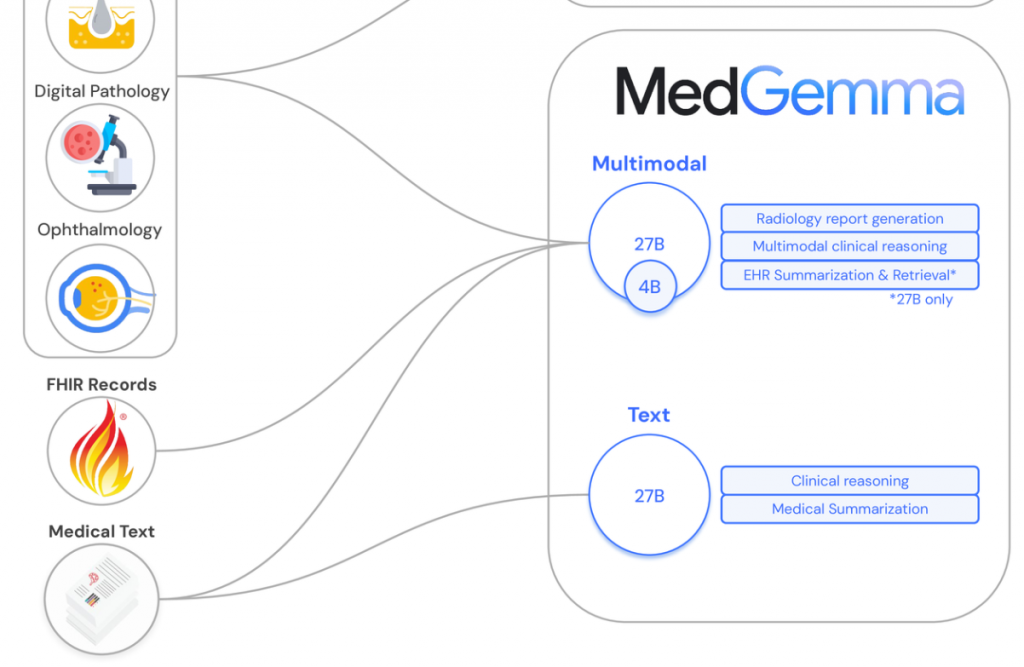Google has unveiled MedGemma, a new family of open-source artificial intelligence models specifically designed for the healthcare and life sciences sectors. This release, part of the company’s Health AI Developer Foundations (HAI-DEF) initiative, aims to accelerate innovation by providing researchers and developers with powerful, adaptable tools for a wide range of medical applications.

Built on the advanced Gemma 3 framework, the MedGemma suite includes multimodal models capable of processing both text and medical imagery. The models are available in various sizes, including 4-billion and 27-billion parameter versions, offering a balance between performance and computational efficiency. This flexibility allows the models to be run on-premise, giving institutions greater control over data privacy—a critical concern when handling sensitive patient information.
A key capability of MedGemma is its proficiency in handling complex, real-world medical data. The models can interpret longitudinal electronic health records (EHRs), generate detailed medical reports from imaging like chest X-rays, and answer complex medical questions. In one demonstration, the MedGemma 4B model generated chest X-ray reports that were deemed sufficient for patient management in 81% of cases when compared to the original reports.
The larger 27B models have shown particularly strong performance on medical knowledge and reasoning benchmarks such as MedQA, rivaling much larger, proprietary models at a fraction of the computational cost. This makes them an attractive option for a wide range of healthcare organizations.
By open-sourcing MedGemma, Google is enabling the global healthcare community to build upon its research. Developers can fine-tune the models for highly specific tasks, leading to state-of-the-art performance in areas like medical report generation and visual question answering. The open nature of the models also ensures reproducibility and stability, as the underlying parameters are fixed and will not change unexpectedly—a vital feature for clinical applications where consistency is paramount.
Early adopters are already leveraging MedGemma for diverse applications, from improving the triage process for chest X-rays to analyzing traditional Chinese-language medical texts, highlighting the platform’s versatility and potential to drive significant advancements in global health AI.
Google has been releasing Gemma models — which typically run on device — for specific use cases. Earlier this year, it had released SignGemma, which was a model to help translate SignLanguage. Google has also released a model named DolphinGemma to help translate dolphin noises into human-understandable text.